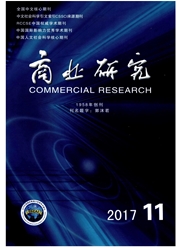

 中文摘要:
中文摘要:
“产业集群社会责任”催生于现实经济发展,是在消费者责任消费意识逐渐增强、企业合作趋于深化等时代背景下应运而生的新经济现象。通过引入“共生视角”,在对产业集群社会责任进行界定的基础上,对其建设过程中存在的“马太效应”进行探讨;进而,以共生系统三要素为判别标准,运用系统动力学对“中心供应链式”和“行业同盟式”两种产业集群社会责任建设的主导模式进行系统仿真分析,研究结果对“马太效应”进行了验证。研究表明,产业集群社会责任需要依托于集群内“共建联盟”(“泛组织合作化”)的发展模式来进行建设;由于“马太效应”存在,产业集群社会责任建设必须是长期而持续的;企业参与产业集群社会责任建设的最大化收益会促进其进行社会责任“创新”。
 英文摘要:
英文摘要:
As a new economic phenomenon, industrial cluster social responsibility derived from the reality of economic development under the background of increasing consumption awareness and deepening enterprise cooperation. By intro- ducing the perspective of symbiosis, and on the basis of the definition of industrial cluster social responsibility, the paper discusses Matthew Effect existing in the construction process; furthermore, taking three elements of symbiosis system as criterion, the paper uses system dynamics to carry out systematical and simulation analysis of leading model of the con- struction of social responsibility including central supply chain and industry alliance for two industrial clusters, whose conclusion testifies the Matthew Effect. The conclusion shows that the construction mode of industrial cluster social re- sponsibility relies on the mode of alliance (Trans-organizational cooperation), meanwhile owing to the Matthew Effect, the construction of industrial cluster responsibility must be continuous and persistent, and the maximum benefit of enter- prises participating in the construction of industrial cluster social responsibility will stimulate innovation.
 同期刊论文项目
同期刊论文项目
 同项目期刊论文
同项目期刊论文
 期刊信息
期刊信息
